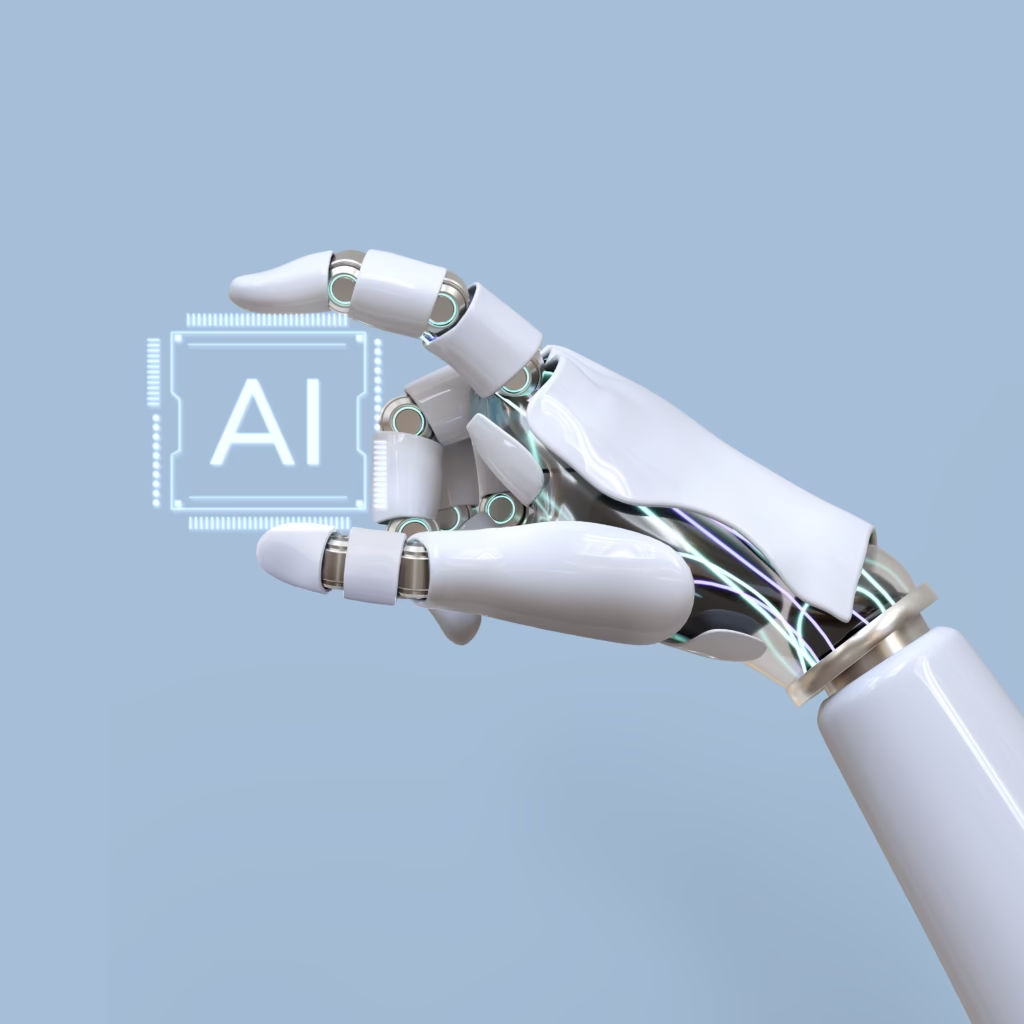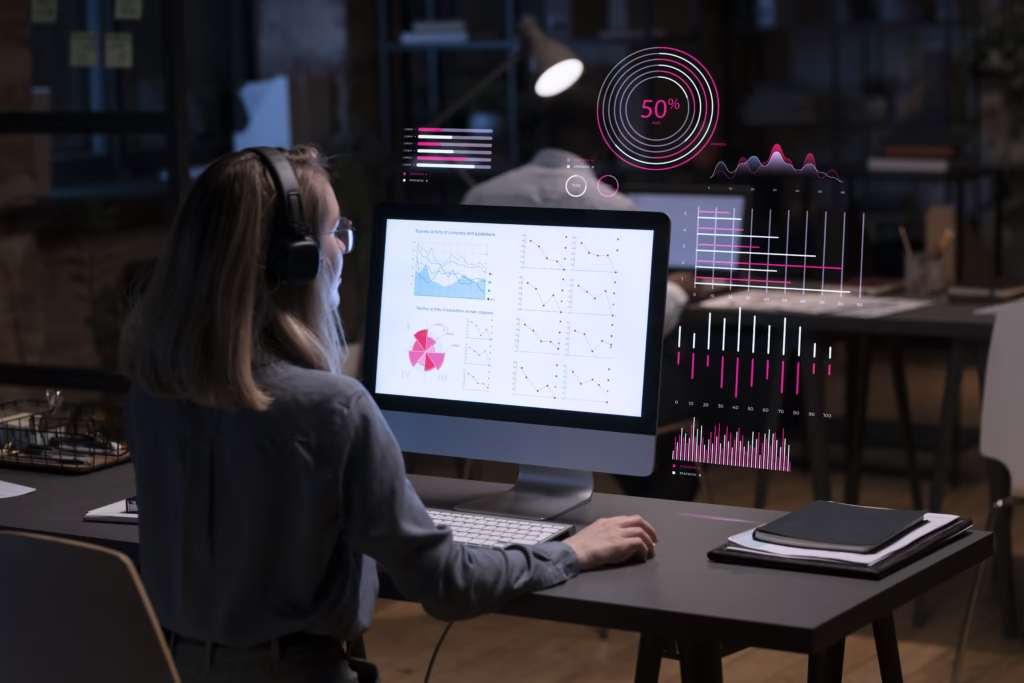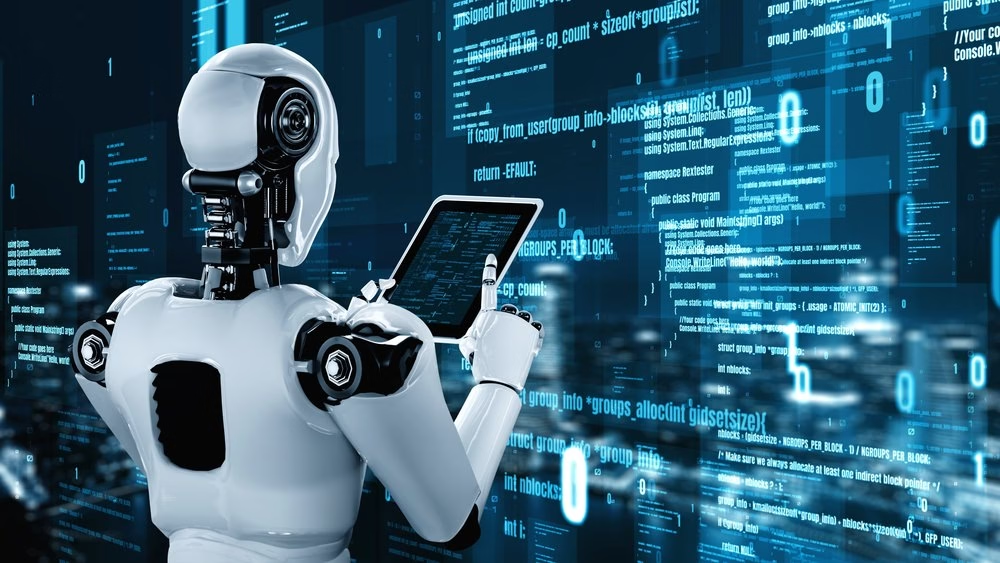The Role of AI in Improving Market Research
Another key benefit of AI for market research is its ability to offer predictive analytics. It can predict future market behavior by recognizing patterns and trends in historical data allowing businesses to anticipate changes in the industry. On top of that, AI tools can make customer insights highly personalized, allowing them to segment audiences with a level of precision never before seen — and adjusted marketing strategies based on the demographic that is being targeted. Such granular levels can enable organizations to launch more focused campaigns.
This, in turn, translates to better customer engagement and a corresponding improvement in the ROI. AI for Market research also minimises human error in interpreting the data, leading companies to more dependable and coherent results they can rely on when planning business strategies.
How Does AI Work for Market Research?

Algorithm, machine learning (ML), and natural language processing (NLP) are the three pillars upon which AI for market research primarily operates. These technologies enable AI systems to independently recognize patterns, trends, and insights from different data sources. Here’s a look at how AI is being used:
- Data Extraction & Aggregation: Another most useful AI-driven tool scrapes data from different sources like social media platforms, online reviews, websites, and databases. Automated data gathering offers time-saving benefits and minimizes human error.
- Sentiment analysis: NLP and ML algorithms can analyze customer reviews, social media comments, and even blog posts to determine the sentiment behind them. They also enable businesses to grasp public perception, unearth pain points, and detect areas for enhancement.
- Predictive Analytics: The predictive ability of AI for Market research enables businesses to predict future trends, customer behavior, and sales performance. AI utilizes historical data to forecast the probability of certain outcomes, enabling businesses to make prognostic rather than reactive decisions.
- Market Segmentation: AI allows brands to interpret their customer bases better by reviewing demographic, behavioral and psychographic data. Segmentation allows businesses to customize their marketing plans and product lines based on customer groups.
- Survey Analysis & Automation: AI can automate the collection of survey responses,perform the analysis, and generate insights. AI enables businesses to ask necessary questions and scrutinize replies at scale, making insights speedier and more precise.
- Competitive Insights: — AI applications can track and analyze various competitive signals such as pricing strategies, product launches, and customer sentiment. It gives businesses a competitive advantage and helps them change their operation strategy.
7 Important Advantages of AI in Market Research

In this article, you will see how AI for market research benefits businesses in many ways. Here are the major benefits that make a difference:
1۔ Faster Insights:
It typically takes weeks or months for traditional AI for market research to deliver results. It speeds that up into real-time or hours so businesses can then make decisions faster.
2۔ Cost Efficiency:
By using AI, the intense of AI for Market research demands on human resources, costly focus groups, and road-life surveys are eliminated. – By automating many parts of the market research process, you save money while also uncovering key insights.
3. Improved Accuracy:
AI for market research reduces human error during data collection and analysis. Algorithms have the uncanny ability to discern patterns and trends that elude human perception, resulting in superior accuracy and performance.
4. Actionable Insights:
But it is AI that generates real insights at a holistic and actionable level. The deep insights are directly applied by organizations to enhance their strategy, execute growth functions and take informed decisions with respect to their businesses.
5. Greater Insight into the Customer:
Leveraging AI tools will allow businesses to get to know their customers at a granular level, learning exactly what customers need, what they like, what they don’t like, including their pain points. This results in more targeted marketing tactics and better product suggestion.
6. Improved Predictive Abilities:
AI can use predictive models to help businesses forecast market trends, consumer behavior, and other outcomes. It enables businesses to make strategic decisions with confidence for AI for Market research.”
7. Scalability:
We recommend using this article to guide you on how you can leverage AI tools to scale your market research efforts. More data = More complexity = More AI to make sense of it all.
3 Market Research AI Missteps — And How to Avoid Them

Here are some disadvantages of AI for market research that businesses should consider: It’s crucial to tread carefully on these potential land mines to prevent adverse consequences.
1. Data Quality Issues:
The data used to train AI algorithms is what makes them work. Also, if your data is inaccurate, outdated, or biased, you will get wrong insights. Businesses should make sure that they are using high-quality, reliable data sources.
Solution: Make sure you are auditing and cleaning data regularly to guarantee reliability and prevent inaccurate results.
2. Overreliance on AI:
AI is a powerful tool, but not a full replacement for human intuition and judgment. This may lead businesses into the trap of overreliance on the insight generated by AI systems, ignoring the point that end-users do not only possess the needs, but also desires and motivations as well.
Solution: The flowers you brought to the pot of AI for solving it. AI can provide valuable insights, but should always be tested against human intelligence.
3. Ethical Concerns:
The use of AI tools in market research typically requires the processing personalized of massive amounts of personal data. If not correct, this raises some privacy and data security concerns. Customer data is also something that needs to be handled carefully, failure to do so may lead to legal and reputational consequences.
Solution: Ensure that artificial intelligence systems adhere to data protection regulations (e.g., GDPR), and that customers are kept in the loop with how their data is being used — the account terms setting this out can be over 10k words long.
AI in Market Research: What is it and How is it Being Used?

Another key benefit of AI for market research is its ability to offer predictive analytics. It can predict future market behavior by recognizing patterns and trends in historical data allowing businesses to anticipate changes in the industry.Another key benefit of AI for market research is its ability to offer predictive analytics. It can predict future market behavior by recognizing patterns and trends in historical data allowing businesses to anticipate changes in the industry.
AI is already revolutionizing market research, and there are some companies and industries that are taking advantage of them. Let’s look at a few examples:
1. Consumer Goods Industry: AI-driven monitoring of consumer sentiment across various social media, blogs, and online reviews are utilized by companies like Procter & Gamble (P&G). With the aid of AI tools, P&G is better positioned to track customer emotions, detect trends in what they’re saying and even warp its marketing strategy as needed.
2. Retail:
Demand predictions, inventory guidance, and the ability to provide personalized experiences to your customers from the same. AI is also able to review customers’ purchase data to forecast trends, allowing businesses greater insight on how they can stock their products.
3. Automotive:
Tesla and other automotive companies use AI to research the market by ingesting consumer praise and tracking what users are saying on social media. The AI tools can help them also review customer preferences and expectations on the design level, technology and features, which assists them in designing products focused on what the market demands.
4. Healthcare:
In healthcare, AI helps analyze patient feedback to identify emerging trends in health and to classify new treatments. AI-driven consumer market research has also led to pharmaceutical companies providing the products that best fit consumer need.
The Next Generation AI for Market Research

Market Research & AI – The Future is Bright With advancements being made rapidly, the potential for AI is nothing less than limitless — whether you opt for a proprietary or open-source system. With the aid of AI, businesses will not only have a grip on the present, but will also get to predict what is to come and the behavior of consumers! We will see even more advanced AI algorithms, better natural language processing, and the combining of AI with other technologies like augmented reality (AR) and virtual reality (VR) in the coming years. These data-driven insights will allow businesses to gain a deeper understanding of their customers and markets than ever before and enhance market research capabilities even further.
Conclusion:
AI for Market research was no longer some far off future vision. It is now and is transforming business decision making. AI is empowering businesses to foresee what lies ahead by automating data collection processes, offering robust predictive analytics as well as actionable insights. However, in order to take advantage of AI’s potential, firms need to be mindful of data quality, ethical concerns, and the balance of AI to expert work. With careful consideration of its integration, AI offers massive value in market research, driving the growth and success of the companies that will prosper in the competitive landscape of our era.

